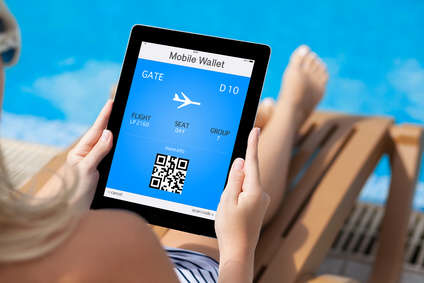Carefree Traveling: Minimize Identity Fraud
 New York City expected 13.4 million visitors this past summer, surpassing Orlando and Las Vegas as the top urban attraction in total tourism spending. As more travelers hit big cities as getaways, scammers do as well to profit at a traveler’s expense.
New York City expected 13.4 million visitors this past summer, surpassing Orlando and Las Vegas as the top urban attraction in total tourism spending. As more travelers hit big cities as getaways, scammers do as well to profit at a traveler’s expense.
Scamming is big business not only in the U.S., but worldwide. More than 5 percent of U.S. adults were affected by an identity fraud incident in 2012, according to a report issued by Javelin Strategy & Research. These days, protecting your identity is as important as protecting your wallet, no matter where you are. So if you visit the Big Apple, or Europe, be particularly wary about protecting your card at all times. Follow Life Lock’s Twitter for tips and information on identity theft protection.
Reputable Firms
Even if you’re a bargain hunter by nature, always work with reputable companies while planning flights, making hotel reservations and booking entertainment. Always ask for confirmation of a reservation. If you have any question about the booking procedure, call for clarification or speak to a supervisor.
Safeguard your credit card information, just as you would any transaction. Call the credit card company in cases where you suspect fraud. If you’re making online purchases, look for the security seal on the URL or only deal with major companies.
Check with the Better Business Bureau or the Chamber of Commerce if you have any doubts about a special offer. Or call the agency or business directly.
Hotel Scams
One popular scam these days involves a phone call purportedly from a hotel’s front desk to a new arrival, according to NBC. The call may come at an odd hour, perhaps late at night, and mentions a problem with a credit card number or a “glitch” in the verification system. That type of call should raise red flags. Never give out such information. Rather, say that you will deal with the problem when you return to the lobby. Follow up in person. Likewise, do not tell a caller “from housekeeping” what time you plan to leave your room. That could be an invitation to a thief.
Internet
Forbes Magazine reports another travel hazard on the rise. Fake free Wi-Fi sites are increasing. Even though it’s tempting to sign on via your mobile phone or tablet whenever you can, such users are more likely to become identity fraud victims than computer users, according to Javelin Research. Any data transmitted may be used in the future for illegal purposes.
Personal Safety
Seeing neighborhoods on foot is enlightening, invigorating and enriching. It can also be dangerous. Inquire about risks if going for a late afternoon walk or an early morning run. Your hotel should be able to tell you areas to avoid. Book sightseeing through established tour companies, and don’t take advantage of any curbside offers to “show you the sights” from operators of private vehicles.

